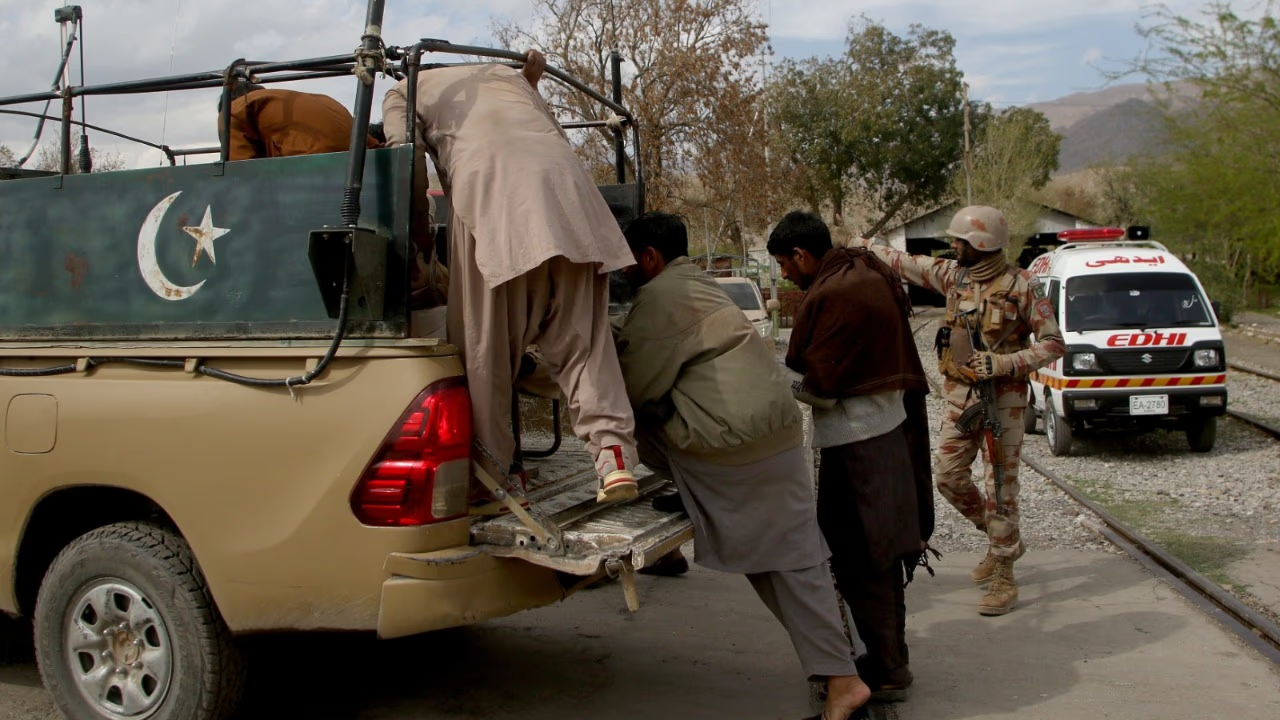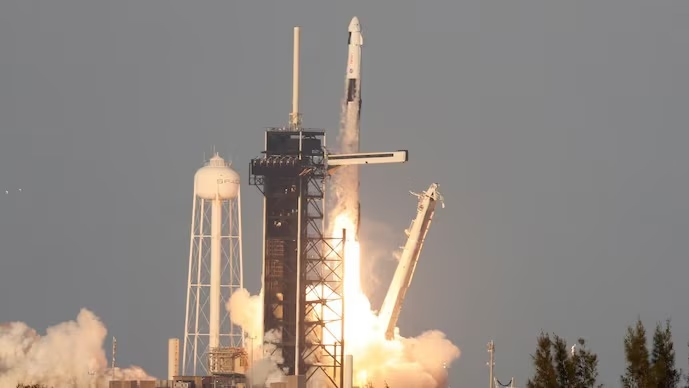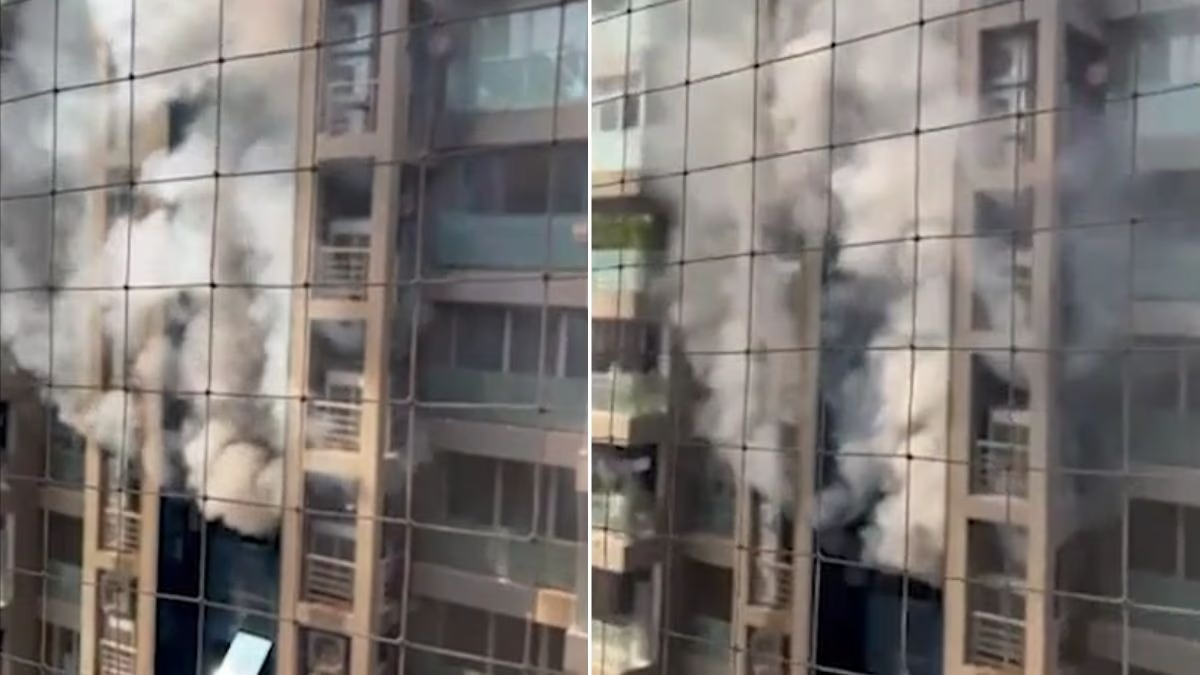On Friday, March 14, a military spokesperson from Pakistan revealed that the death toll in the train hijacking by Balochistan Liberation Army terrorists has risen to 31. According to Reuters, spokesperson Chaudhary said the deceased included 18 soldiers, three railway employees, and five civilians who were held hostage by the rebels for over 24 hours. Earlier statements indicated a total of 26 fatalities.
During a press conference with Balochistan Chief Minister Sarfaraz Bugti, Director-General of Inter-Services Public Relations (ISPR), Lieutenant General Ahmed Sharif Chaudhary disclosed that before the army began their operation, the terrorists executed 26 hostages. He noted that five additional soldiers died during the rescue effort. In total, 354 hostages were rescued, he added.
Further, he mentioned that during the operation, five paramilitary personnel from the Frontier Corps were killed, including four Frontier Corps soldiers themselves.
BLA Hijacked the Jaffar Express
The Balochistan Liberation Army (BLA) terrorists targeted the Jaffar Express in Balochistan's Bolan region, seizing over 400 passengers. This prompted security forces to commence an operation that extended into the next evening.
Rescue Operation Lasted 30 Hours
The rescue operation began on Wednesday and lasted for 30 hours. During the mission, all 33 terrorists were killed, and over 300 passengers were successfully rescued. The army spokesperson confirmed the rescue of 354 hostages, among them 37 injured passengers.
Read More: Pakistan: Bodies Recovered from Jaffar Express Sent to Quetta Hospitals, Roads Blocked
Accusations Against India
Ahmed Sharif Chaudhary reiterated accusations against India for inciting unrest in the province. He stated, “The primary sponsor of terrorism in Pakistan is our neighboring country.”
The Pakistani army spokesperson also presented a purported video of former Indian Navy officer Kulbhushan Jadhav, where he allegedly admitted to RAW’s involvement in terrorist activities in Balochistan.
Chaudhary also shared statements from some Indian leaders and officials, including National Security Advisor Ajit Doval, suggesting the Jaffar Express train attack was part of a larger conspiracy.
Read More: Pakistan: Bodies Recovered from Jaffar Express Sent to Quetta Hospitals, Roads Blocked
India's Firm Response
Earlier in the day, India dismissed the accusations of supporting terrorism against Pakistan. India advised Islamabad to reflect on its own shortcomings before blaming others, adding that the world is aware of the epicenter of global terrorism.
Chief Minister Bugti addressed discrepancies in the passenger and rescue numbers, stating that 425 tickets were issued, but not all may have boarded at the initial station, with some expected to board at subsequent stations.
He also mentioned that some passengers might have fled the scene during the confrontation and might return in the upcoming days. Additionally, two hiding passengers have returned.
Read More: 'Fought Until the Last Bullet, When Ammunition Ran Out...' A Hostage Police Officer's Harrowing Tale of Jaffar Express Attack
Pakistan Army Conducting Intelligence Operations
The army spokesperson stated that Pakistan’s security forces conduct nearly 180 intelligence operations daily to combat the terror threat. In 2024, 59,775 operations were conducted, and in 2025, 11,654 operations have been executed so far. Approximately 1,250 terrorists were eliminated in 2024 and 2022 combined.
Discussing the recent surge in terrorism, the spokesperson cited Afghanistan as a major contributing factor, where terrorists find refuge and receive support, training, and manpower from banned organizations like Tehrik-e-Taliban Pakistan (TTP).
He emphasized that Pakistan’s adversaries do not desire peace and progress in the country and use terrorists as proxies to achieve these goals.
Providing insight into the military operation, he used maps to demonstrate the challenging access to the area. Terrorists destroyed the track and killed four Frontier Corps soldiers. He also noted that the terrorists remained in contact with their handlers in Afghanistan throughout the operation.




